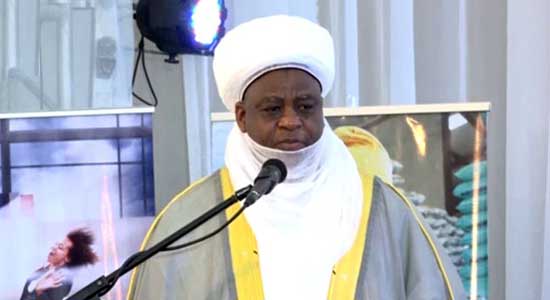Sultan, Awujale urge Muslims to support the needy through Zakat
The Sultan of Sokoto, Sa’ad Abubakar, and the Awujale of Ijebuland, Oba Sikiru Adetona, have called on wealthy Muslims to fulfil their obligation of paying Zakat to help alleviate poverty and economic hardship in Nigeria. The traditional leaders made the appeal on Sunday in Abeokuta, Ogun State, during a Zakat distribution event organised by the […]

saad abubakar iii sultan of sokoto
The Sultan of Sokoto, Sa’ad Abubakar, and the Awujale of Ijebuland, Oba Sikiru Adetona, have called on wealthy Muslims to fulfil their obligation of paying Zakat to help alleviate poverty and economic hardship in Nigeria.
The traditional leaders made the appeal on Sunday in Abeokuta, Ogun State, during a Zakat distribution event organised by the Education Social and Health Mission (MESH), a branch of the Nigerian Supreme Council for Islamic Affairs (NSCIA).
During the event, 45 beneficiaries from various parts of Ogun State received economic empowerment and educational support through Zakat contributions.
The Sultan, who also serves as the President-General of the NSCIA, emphasised the importance of the affluent helping those in need, particularly in the challenging economic climate facing the country.
- ‘No NASS approval for new presidential jet’
- Police exchange fire with kidnappers, rescue 3 victims in Abuja
Represented by Dr. Abdullahi Shuib, Sultan noted that aiding the less fortunate has a significant impact on addressing broader socioeconomic issues, including insecurity.
“This is the time when people who have two should be able to let go of one, and those who have three should let go of two so that these resources reach all corners of Nigerian society.
“This approach has a multiplier effect in reducing insecurity and rejuvenating the secure society we once had,” the Sultan said.
The Awujale, represented by Prof. Habeeb Oladipo Oduye, Vice President-General (Remo Zone) of the Ogun State Muslim Council, acknowledged various initiatives aimed at addressing poverty.
He highlighted the importance of these efforts in empowering the needy to eventually become wealth creators and, in turn, Zakat payers themselves.
The MESH coordinator and Lead Programme Officer, Hajia Khadijah Oladipupo, urged the beneficiaries to make the most of the empowerment items they received, with the hope that they too will be able to contribute to Zakat in the future.
